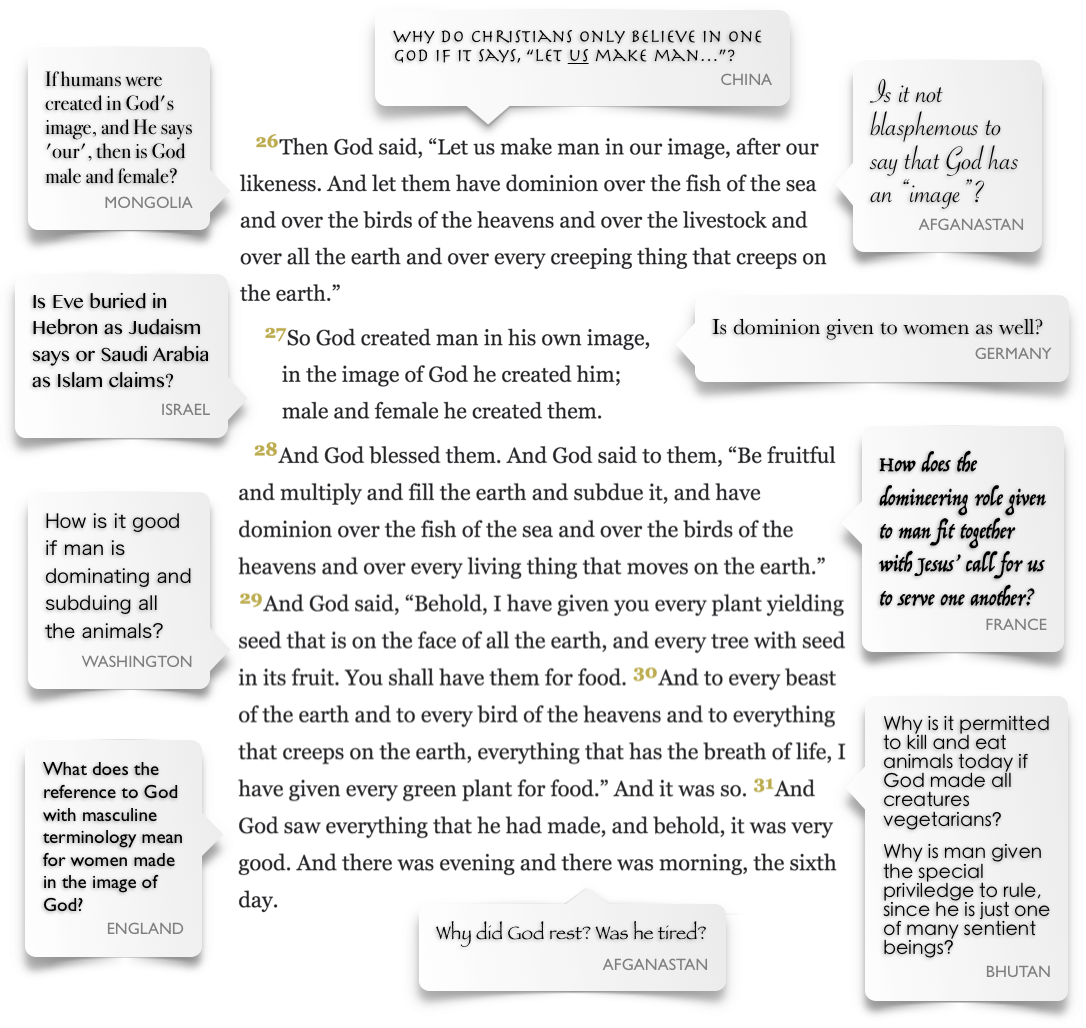Lesson 6 | The Word and the World [1]
Answers and questions
The word provides answers to the questions prompted by the world.
Knowing the questions
People in different contexts ask different questions, and so there is no universal teacher's guide for the Bible. We need to think this through in our preparation and consider what the people we are teaching are likely to ask about, given the passage and the topics it touches upon. I have made the mistake of staring at a text and only dealing with the questions which I have, without giving thought to what questions others will raise. Suffice it to say, these were not my most effective teaching experiences.

Granted, some questions raised in your context will not be answered in the text you are teaching on and could make for significant rabbit trails. While we do want to stick to the text at hand and not get too far off its key points, we can at least acknowledge such issues when they come up. Furthermore, we would be wise to prepare to point people to the biblical texts which do address these questions.
Addressing the issues of the day year
In an earlier lesson, we held up expository teaching through books of the Bible as generally superior to topical teaching. However, sometimes our contexts see questions raised to the level of a scream, and we would be derelict in our duty if our churches did not address such issues. To be clear, we are not talking about the daily news headlines. There are always headlines and always issues that certain people find incredibly important. But the Bible has a more important message. Its structure should set the agenda, with an exception being made only when the current issue in society reaches a critical level.
Of course we are talking about the selection of a text. When the next passage you are set to teach on touches hot issues of the day, by all means you must insert that scripture into the center of the controversy. However, let us beware of putting our churches and the Bible into a camp. While the scriptures are by no means neutral, they also do not sit inside political and societal camps—they stand over them. Thus, when that camp shifts, it ought to be clear to all that the Bible does not follow along!
When Joshua was by Jericho, he lifted up his eyes and looked, and behold, a man was standing before him with his drawn sword in his hand. And Joshua went to him and said to him, 'Are you for us, or for our adversaries?' And he said, 'No; but I am the commander of the army of the Lord. Now I have come.' And Joshua fell on his face to the earth and worshiped and said to him, 'What does my lord say to his servant?' —Joshua 5:13-14